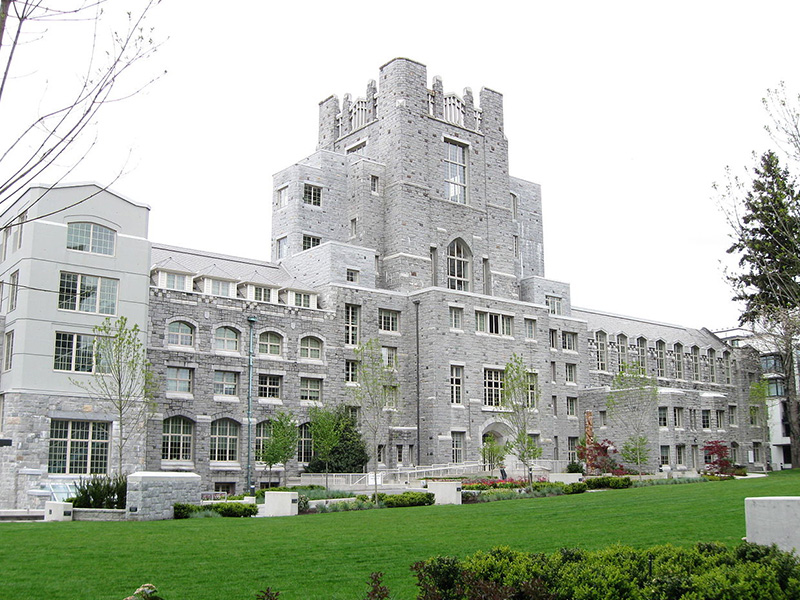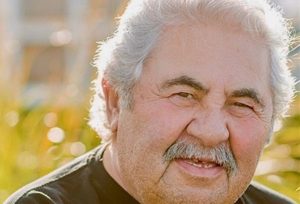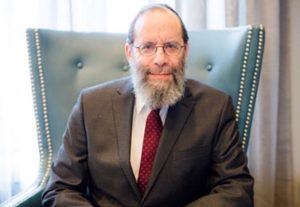For the second time in two years, a boycott, divestment and sanctions (BDS) resolution at the University of British Columbia has failed.
But unlike the student referendum in 2015, when the proposal garnered a majority of votes but did not attain a quorum, the 2017 vote failed both in attaining a quorum and in convincing a majority of student voters to support it.
After a weeklong online poll concluded April 7, 1,513 members of the Alma Mater Society (AMS), the university’s student union, had voted against the proposal. Only 1,396 students voted in favour.
The result is a remarkable turnaround from a vote two years ago on the same resolution, when 3,493 students voted “yes” to BDS and 2,223 said “no.” In 2017, 2,909 fewer students voted and the pro-boycott vote dropped by 2,097 votes, from 3,493 to 1,396.
Jewish opponents of the BDS vote, who lobbied extensively against it, were ecstatic with the result.
“I’m absolutely thrilled that the second time in two years this nefarious BDS referendum has been defeated, a referendum that in all honesty is nothing more than a call for the elimination of the State of Israel,” said Rabbi Philip Bregman, executive director of Hillel BC.
“We had students from all over the university, Jewish and non-Jewish, who joined in this time in the fight against this. We’re thrilled.”
The Centre for Israel and Jewish Affairs (CIJA) applauded the students’ rejection of what it termed a “discriminatory resolution.”
“These types of anti-Israel initiatives are at odds with academic freedom and often violate human rights codes by calling for discrimination on the basis of national origin. They have no place on a campus that welcomes diversity and meaningful debate,” said Jason Murray, Pacific region chair of CIJA.
READ: B.C. SUPREME COURT DENIES PETITION TO STOP BDS VOTE AT UBC
“These results, particularly when compared to 2015, show that students are finally waking up to the bigoted, divisive nature of the BDS agenda,” said Michael Mostyn, CEO of B’nai Brith Canada.
Meryle Kates, executive director of StandWithUs Canada stated: “This vote once again ensures that UBC will not participate in a campaign of hate against Israel and its people.”
Robert Walker, national director of Hasbara Fellowships Canada, said the result “is not a surprise. BDS activists are waging a losing war. Students, like all Canadians, are, by and large, simply not buying into this malicious misinformation.”
The resolution prompted a spirited debate on campus, even if few students appeared to be paying attention. There were also reported incidents of vandalism, with B’nai Brith saying anti-BDS campaign posters were destroyed or defaced, and pro-referendum groups saying they experienced “intimidation and abuse,” after members of the Jewish Defence League disrupted an April 4 panel discussion.
Sponsored by Solidarity for Palestinian Human Rights (SPHR) at UBC, the referendum question read: “Do you support your student union (AMS) in boycotting products and divesting from companies that support Israeli war crimes, illegal occupation and the oppression of Palestinians?”
An op-ed in the Ubyssey, the student newspaper, argued “BDS will bring bigotry, hatred and even violence to UBC.”
A column in the Talon, which bills itself as UBC’s alternative student press, argued the referendum offered students a “second chance to stand for justice.”
One student, Logan Presch, who is not Jewish but is a member of the Jewish Students Association, took the issue to court in an unsuccessful bid to stop the vote. He said the question’s ambiguity – it was not clear which companies would be boycotted or divested – “led me to believe that the true intentions of the question was more nefarious than what it seemed.”
Presch said “the pro side couldn’t get enough people to care. There was an overwhelmingly negative response to the question on social media ever since it was brought up that the AMS could be violating their bylaws by not sending it to Student Court.”
A different perspective was offered by undergrad Anna Kroeker. “I voted yes because I believe that boycotting companies that contribute to and fund the occupation of Palestinian land is vitally important and worthwhile. It sends a message that we will not stand for this occupation, which is a stance unfortunately not echoed when governments support companies that fund Israel.”
Elsewhere, student associations at the University of Toronto, McMaster University, York University, Carleton University, University of Regina, Trent University and Ryerson University have adopted some sort of BDS motion, though some have been reversed.
With files from Lauren Kramer.







